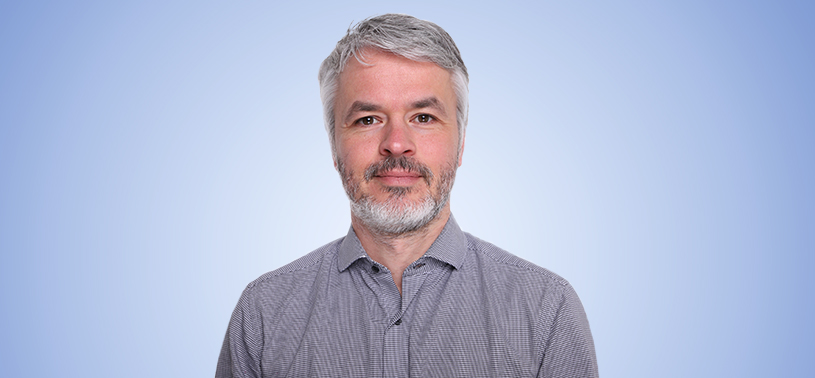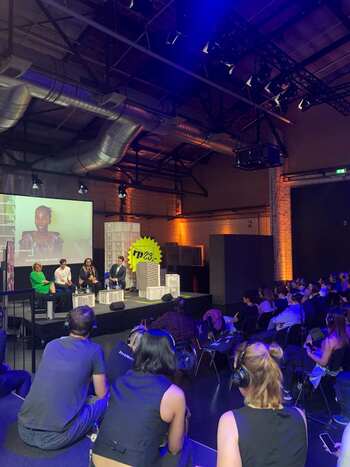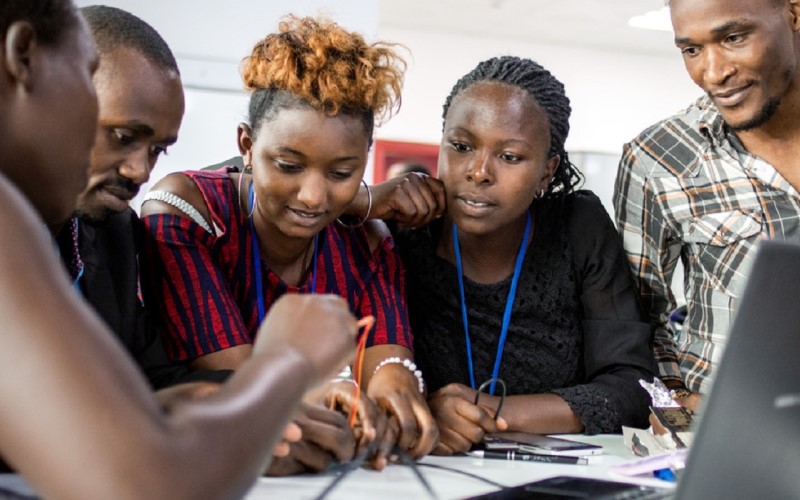
13.06.2023
‘Using artificial intelligence to improve living conditions’
Artificial intelligence was the hot topic at re:publica 2023. GIZ and its partners are already using it to implement projects successfully. An interview with Björn Richter, Digital Transformation Cluster Coordinator at GIZ.
Digital international cooperation is familiar territory for the Deutsche Gesellschaft für Internationale Zusammenarbeit (GIZ) GmbH. On behalf of the German Development Ministry (BMZ), GIZ is implementing digital projects worldwide, putting people at the heart of its solutions.
Mr Richter – GIZ, BMZ and their partners were represented at re:publica, with various projects. What’s your takeaway from the festival?
Make appropriate use of digital technologies and ask where they provide added value. After all, digitalisation is not automatically a good thing. It has great potential in international cooperation, but a sustainable approach is crucial. CO2 emissions for digital infrastructure are already higher than those from air travel. This tells us that digitalisation has to work hand-in-hand with climate action. That’s why, as part of the twin transition, we look to see where digitalisation is effective, where it helps achieve the UN’s Sustainable Development Goals and how both the climate and biodiversity can be protected using digital approaches.
The number of digital applications that use artificial intelligence (AI) is growing fast. How is GIZ approaching this issue?

We focus on people and values. We take a partnership-driven approach to our work, develop standards and advise policy-makers – especially on data protection. Our support in relation to AI centres on having a clear framework and open data. One example is Rwanda, where we supported the Government and the digital ecosystem in developing a strategy for using AI to improve living conditions for people in the country. In Rwanda, for example, we worked with the national health authority to develop a Covid-19 chatbot that could answer questions about the pandemic from over 2.2 million people. This approach is now also being rolled out in other countries such as South Africa, Ghana and Kenia. Smart Africa, a network of 35 African heads of state and government with the aim of creating a digital single market in Africa, plays an important role in this. Our job is often to help link up partners who are part of a digital ecosystem such as the African member states or private sector partners like Microsoft and develop specific applications to suit their needs.
Digital innovations are constantly evolving. How can you keep up with the times but at the same time leave no one behind?
The digital divide was made worse by the COVID-19 pandemic There are huge differences between the Global North and South and also between men and women when it comes to internet access and the number of users. This is why our concept of digitalisation is broad-based. In rural Africa, for example, we are providing learning content from more than 100 GIZ projects on the atingi learning platform. Users can also access the content and make use of it offline. Alongside internet access, one of the major issues addressed at re:publica is gender equality, something that plays a big role in our work too. Information and communications technology is still very male-dominated.
How are you dealing with the digital divide between women and men?
We can’t just sit it out. Our projects are providing targeted support for women developers. We are working to achieve fair and inclusive access with training courses specifically for women. In Malawi, for instance, we are supporting the Drone and Data Academy, which is run by the United Nations Children’s Fund (UNICEF). The Academy helps women gain a foothold in the world of technology.
